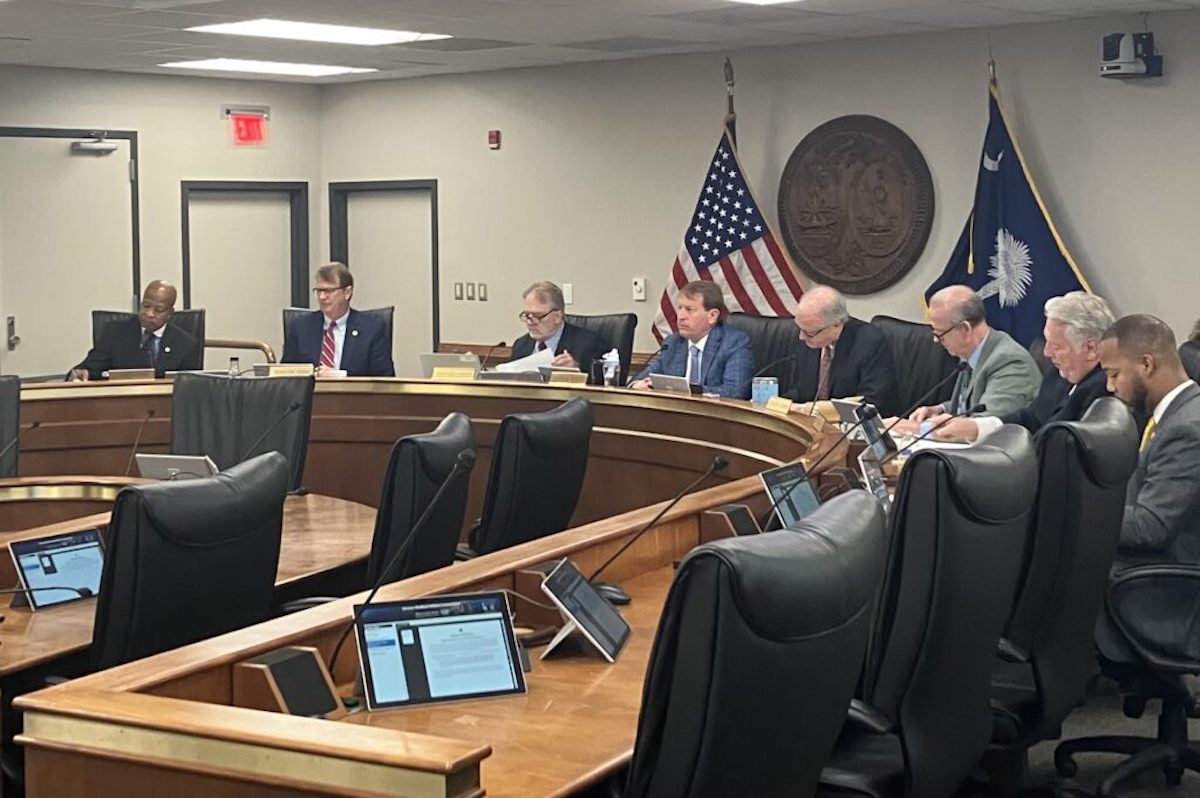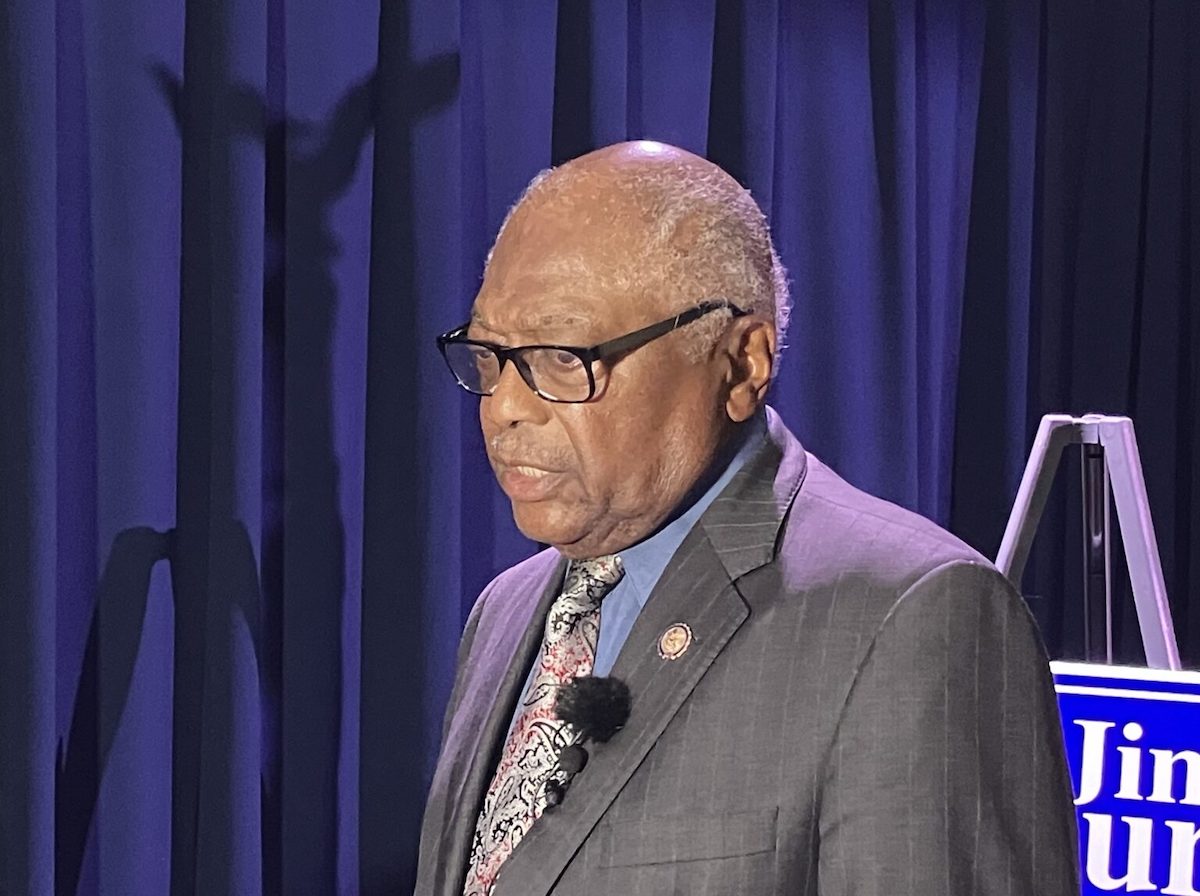By Abraham Kenmore
SCDailyGazette.com
COLUMBIA — Legislation limiting what state government could do to protect South Carolinians in a future pandemic or outbreak advanced — again — over the continued concerns of Gov. Henry McMaster and South Carolina’s public health director.
The Senate panel did, however, make some changes Thursday, as even supporters recognized the bill could cause real public safety problems.
Parts of the bill “could cripple South Carolina’s ability to respond promptly and appropriately to future public health threats and potentially place innocent lives at risk,” the Republican governor said in a letter sent to senators Wednesday evening ahead of the meeting.
“As a general rule, placing overbroad restrictions on the authority of public health officials, law enforcement officers, first responders, and emergency management professionals responding to
emerging threats and disasters — whether public health or otherwise — is a bad idea,” McMaster wrote in a rare public criticism of pending legislation.
His unwillingness as COVID spread to impose the kinds of mandates other governors did makes his opposition especially notable. His rolling orders were comparatively short-lived and allowed for far more exceptions. McMaster was the last governor east of the Mississippi to tell people to stay home — unless they had to go to work — and among the first to lift restrictions.
After Thursday’s changes, the bill no longer bars public health officials from buying or distributing new vaccines. And it doesn’t prevent them from putting shots in arms. But it requires them to get signed consent before they do.
The bill continues to ban employers from requiring workers to take new vaccines. And it still threatens to put business owners in prison for up to five years if they do.
Most of the adopted changes were offered by uber-conservative Sen. Richard Cash of Anderson County.
The original bill “simply takes the pendulum too far in the other direction,” said the Powdersville Republican. “We just don’t want people to be mandated to have to take them.”
The amended bill continues to restrict the public health agency’s authority to force people into isolation if they test positive for a disease or are exposed — something they never did in South Carolina during COVID.
It advanced to the full Medical Affairs Committee 4-3 along party lines. A different, smaller subcommittee advanced the bill two weeks ago.
The bill’s sponsor, Sen. Shane Martin, was made chairman of the panel that took it up Thursday.
Dr. Edward Simmer, director of the state Department of Health and Environment Concern, addressed the panel after writing a six-page letter of concern Wednesday.
“There are a number of issues that we believe where this bill would actually cause harm to the people of South Carolina and would in fact cause unnecessary death among the people of South Carolina during a public health crisis,” he told the panel.
Martin, R-Pauline, said his bill was a response to what he saw as overreaches during the COVID pandemic.
As written, the bill disallowed the public health agency from buying or handling any “novel vaccine,” defined as any vaccine approved in the last 10 years or any with emergency authorization, such as those given to COVID vaccines.
Simmer said that would include the flu vaccine, since it changes yearly.
“This would, for example, prevent a healthcare facility from requiring their staff to get the flu vaccine,” Simmer said.
Both Cash and Martin said they didn’t intend the prohibition to apply that broadly.
The bill limits how long people can be required to isolate: 10 days if they have a contagious disease and five days if they’re exposed to it.
State law that dates to 2002 allows forced isolations only in certain conditions and through a set process. While DHEC never used that authority during COVID, requiring people to separate might be necessary for other infectious diseases, such as Ebola, plague, and bird flu, Simmer said.
Ebola has a 50% fatality rate. People can remain infectious for weeks, and it can take longer than five days for someone who’s exposed to come down with it, Simmer said.
Cash indicated he’s willing to amend the bill to include a longer window.
After the vote, Cash told the S.C. Daily Gazette the bill is a work in progress, and legislators need more answers. He intends to meet with Simmer later.
“I was glad we were able to have so much conversation with Dr. Simmer,” Cash said.
After the meeting, the governor’s spokesman said some of his concerns were addressed by the changes. But others remained.
That includes the bill no longer allowing natural disasters to be considered a public health emergency.
Simmer testified that a natural disaster could cause health risks through pollution leaks or by leaving dead bodies behind. Public health officials need to be able to dispose of them quickly and safely, he said.
Abraham Kenmore is a reporter covering elections, health care and more. He joins the S.C. Daily Gazette from The Augusta Chronicle, where he reported on Georgia legislators, military and housing issues.











